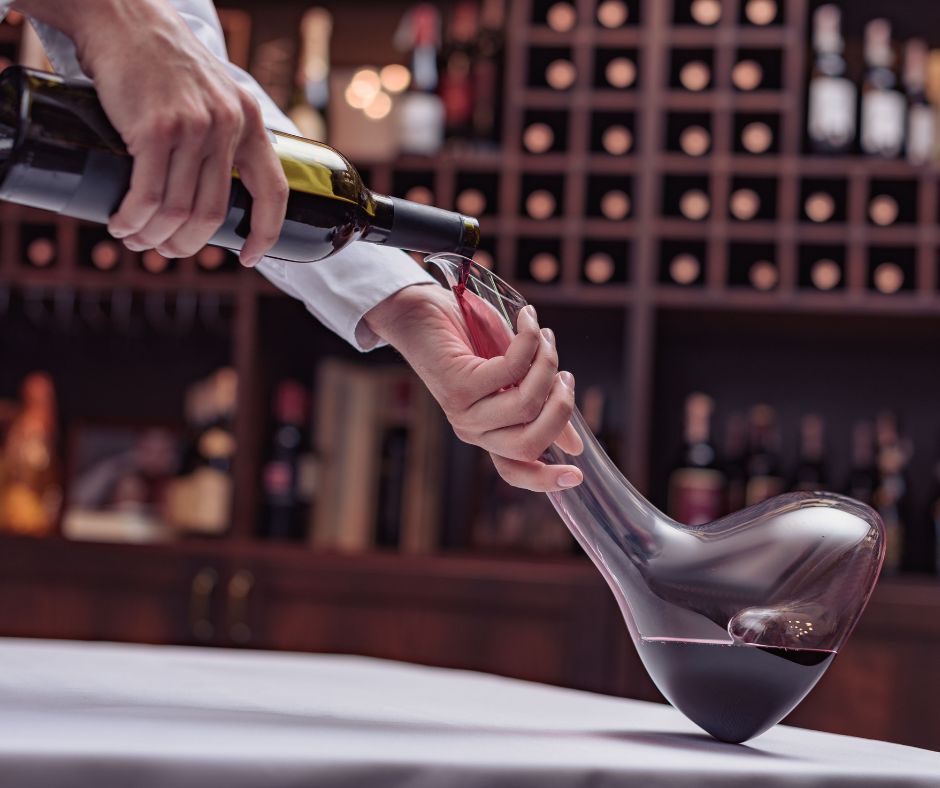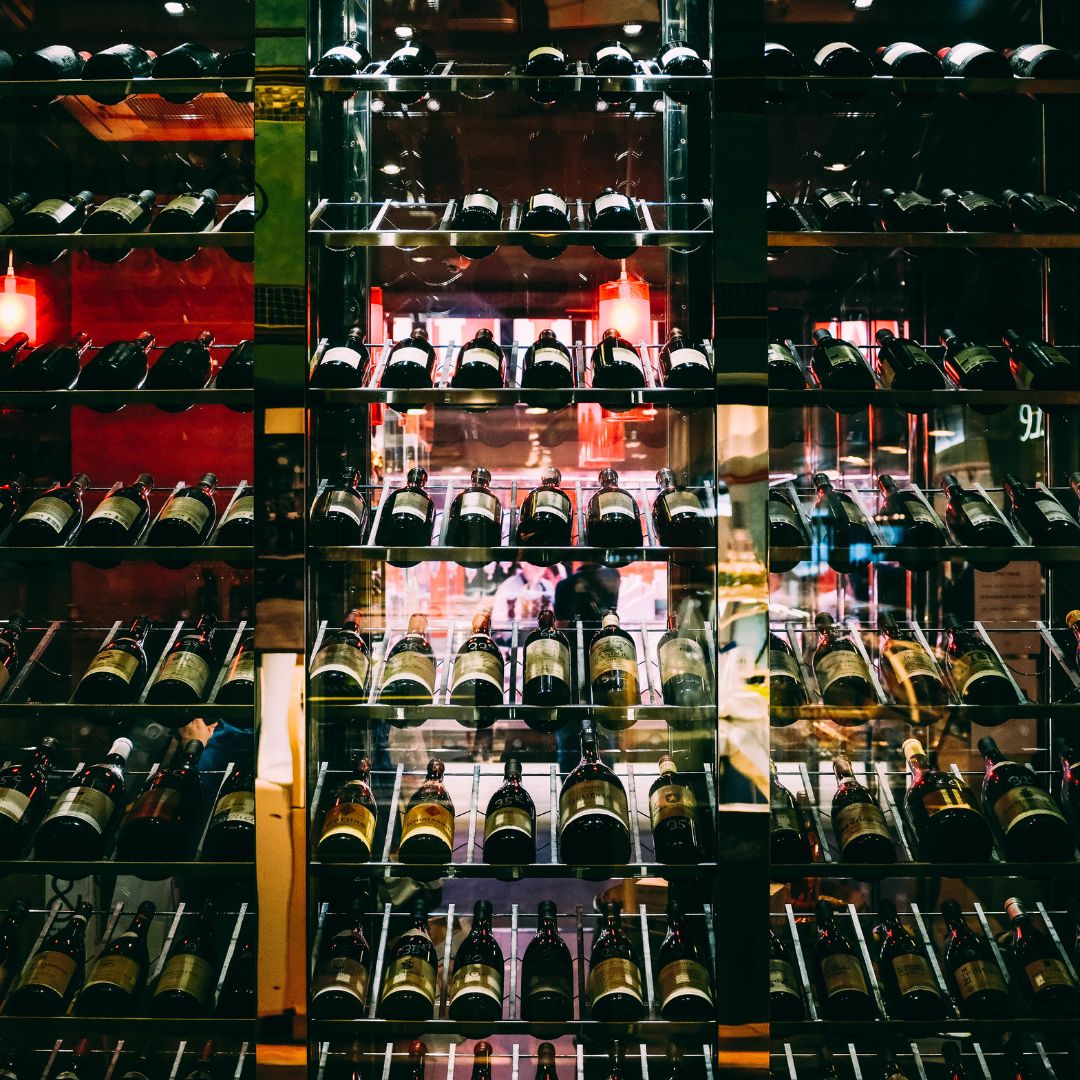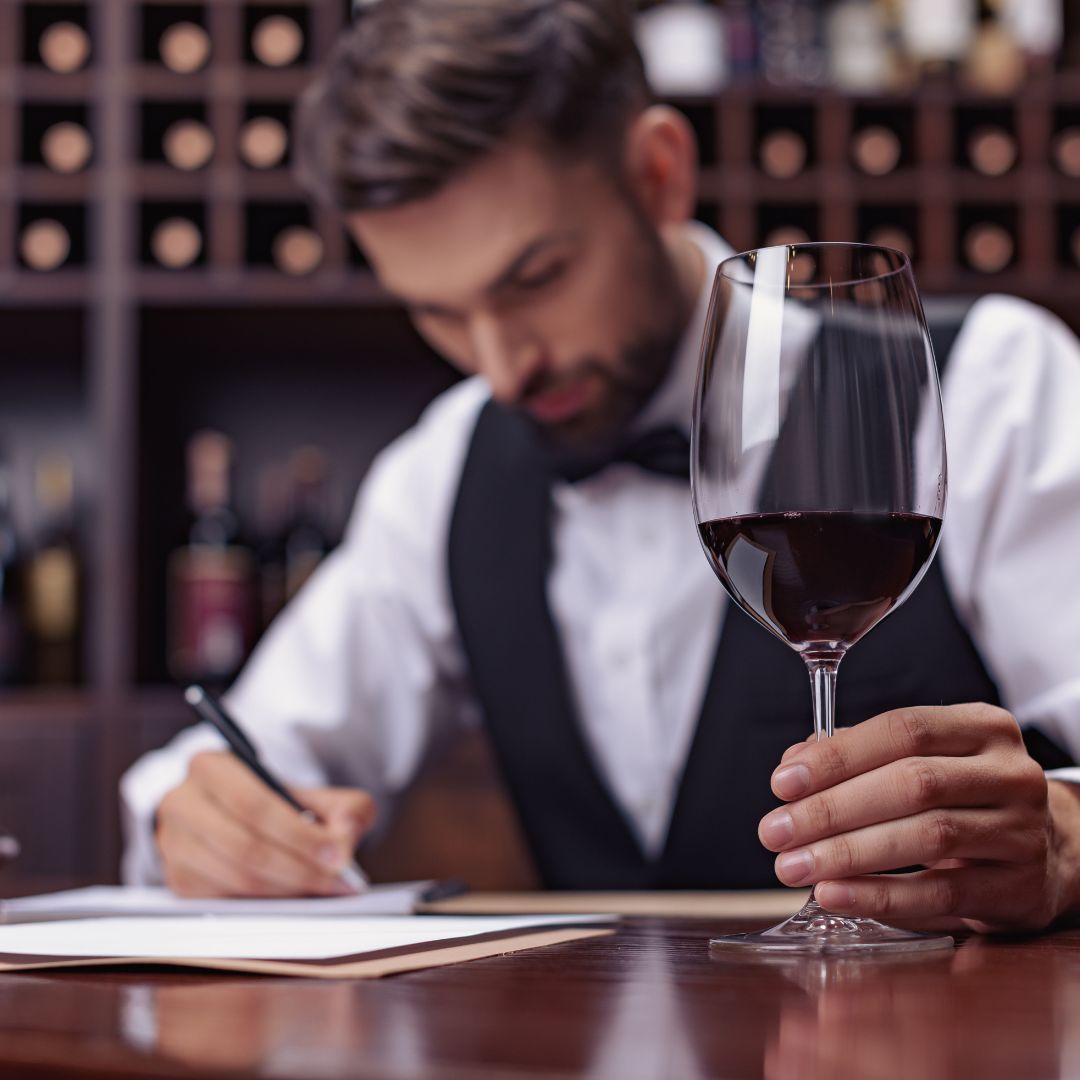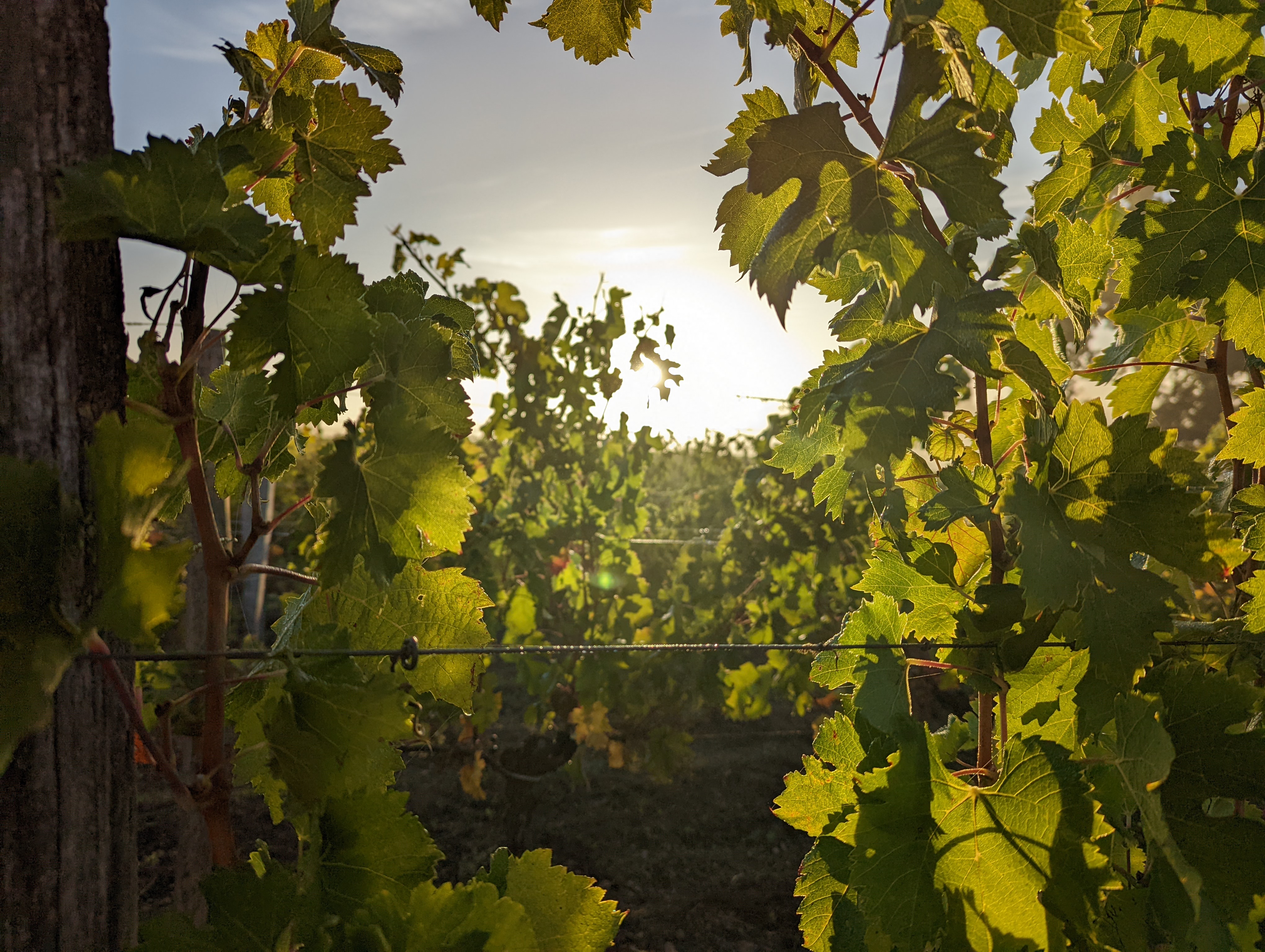Sommelier : a passionate profession

A sommelier is a professional wine expert whose knowledge and expertise are understood in the broadest sense. From the characteristics of the wine to the best food pairings, not forgetting the characteristics of the terroir, grape varieties and appellations and the art of service, the sommelier knows how to speak with ease about all aspects of wine. They are the œnological reference that every wine lover would like to have at their table. The job of sommelier is one of those that can be described as a passion, because it cannot be considered without great curiosity and a strong appetite for the world of wine.
Her/his missions
A guide for customers
- Listening and understanding
The sommelier must listen carefully to decode the tastes and preferences of customers, understand the context of the meal (special occasion) and understand their budget so as to be able to make personalised recommendations. Drawing on their in-depth knowledge of wines, sommeliers propose selections tailored to the customer's tastes and budget, suggest harmonious food and wine pairings in collaboration with the chef, and offer original choices to help customers discover new vintages.
- Presentation and service
There is a certain amount of formality involved in the presentation of the bottle by the sommelier and the serving of the wine: he or she presents the chosen bottle to the customer, opens it in front of him or her and lets the customer taste the wine, taking care to explain the characteristics of the wine (grape variety, terroir, vintage) and to make his or her speech and technical knowledge as accessible as possible to neophytes. They then ensure that the wine is served according to the rules of the art (decanting if necessary, appropriate temperature) throughout the meal. Their role as advisors should reflect their passion for wine in an engaging way.
A quality Consultant
In consultation with the chef and the table-setting team, the sommelier prepares the wine and selects the appropriate glassware to serve the guests.
They work closely with the kitchen team to harmonise menus and wine selections. They have to adapt their offer to the chef's menu and changing menus, with the ongoing aim of offering the best food and wine pairings to enhance the customer's tasting experience. In this way, they are the guarantors of the quality of the tasting experience for their customers, with whom they interact regularly to answer questions and offer advice. That's why sommeliers need excellent communication and interpersonal skills.
An administrator
 Photo ©Canva
Photo ©Canva
The sommelier is often responsible for managing the cellar, which includes selecting and diversifying wines, ordering, ensuring optimum storage and conserving bottles. This also requires good management of costs and budgets when purchasing and selecting wines and spirits for the establishment.
The sommelier must ensure that the cellar is optimally organised to facilitate bottle storage and retrieval. This includes separating wines by colour and by region/appellation, maintaining a constant temperature of between 12 and 14°C and an appropriate level of humidity, using an efficient storage system to locate bottles quickly and managing stocks by adapting them to the drinks and dishes on offer. They must be meticulous in their cellar management and inventory control to ensure constant supplies. They regularly assess the condition of the bottles in the cellar to determine their peak and optimum tasting window. In this way, they can ensure optimum stock rotation.
A training Consultant
The sommelier is the guarantor of the best possible advice for customers. To do this, they must also train restaurant or cellar staff in the characteristics of different wines, the specificities of terroirs and appellations, and the appropriate pairings to suggest.
His/her skills
A sommelier must have extensive knowledge of wines, spirits, beers and other beverages. This includes an understanding of different grape varieties, wine-growing regions, winemaking techniques and food and wine pairings. Needless to say, their previous tasting experience should be rich and varied.
The job requires a particular sensitivity to aromas and flavours, as well as the ability to describe these sensations accurately in order to give customers the best possible advice, whatever their level of knowledge of oenology or their budget. They must also be able to make suggestions and present different wine options to accompany the dishes to be tasted.
In addition, sommeliers need to be aware of alcohol laws and the responsibility that goes with them, including the rules on the sale of alcohol and responsible service.
In short, the sommelier's role of advising customers requires interpersonal skills, technical expertise and the ability to pass on knowledge in an accessible and exciting way.
Job constraints
Like all professions, this passionate profession has its share of constraints that it is important to consider before thinking about training. These constraints can vary depending on the type of establishment in which the sommelier works: restaurant, hotel, cellar, etc.
Long working days
Sommeliers often work in the restaurant sector, which is known for its long working days. Evenings, weekends and public holidays are no longer days off, and work is concentrated on customers' leisure time. The pace of their work is often at odds with that of their families.
Unavoidable journeys
What's more, with a view to constantly enriching the wine list and adapting the range to the chef's seasonal menus, it's a good idea to consider occasional trips to vineyards or trade shows to discover and select new wines.
Highly adaptable
The sommelier profession alternates between periods of intense activity and quieter times. Room service can be intense during peak periods. Sommeliers need to be able to manage stress and make quick decisions while maintaining an excellent level of service.
A duty of continuous training
Given that the world of wine is constantly evolving, with new trends, changing vintages and the discovery of new wine-growing regions or new grape varieties associated with different terroirs, sommeliers need training throughout their careers. They must keep informed of new products and trends, often by taking part in ongoing training courses.
Despite these constraints, the sommelier profession offers the opportunity to work in an exciting, constantly evolving environment, combining gastronomy and œnology, while developing recognised expertise in the field of wines and spirits. The sommelier helps to promote the brand image of the establishment and contributes to its economic development. Provided that customer contact is also in your DNA, the job is very rewarding!
Training and career
 Photo ©Canva
Photo ©Canva
To become a sommelier, there are several possible training courses, depending on your career goals and level of education, from CAP to Bac+2. Here are a few options:
- CAP or BEP : A Certificat d'Aptitude Professionnelle (CAP) or a Brevet d'Études Professionnelles (BEP) in the hotel and catering industry can be a first step. These diplomas provide a solid grounding in the catering sector.
- Bac Pro : a Bac Professionnel (BTEC National Diploma)in the hotel and catering sector may also be a good option. This diploma offers more in-depth training and prepares students for careers in catering and service.
- BTS (BTEC Higher National Diploma) : A Brevet de Technicien Supérieur (BTS) in hotel and catering, with a specialisation in the art of the table and service, can also be very beneficial. This diploma is often appreciated by employers
- Specialised training: There are sommelier schools that offer specific training courses, such as the Diplôme National de Sommellerie (DNS) or sommelier certificates. These courses focus on wine knowledge, tasting techniques, knowledge of terroirs, etc.
- Professional experience: Working in restaurants, wine bars or cellars can provide you with valuable experience. Many sommelier skills are acquired on the job, and can then be validated and developed through VAE (Validation des Acquis de l'Expérience / validation of prior experience).
- Further training and qualifications: Once you have acquired basic knowledge, you can also consider further training or specialist qualifications, such as those offered by professional organisations or wine schools.
- Passion and curiosity: Finally, a passion for wine and gastronomy, as well as a constant curiosity to learn about and discover new wines, are essential for success as a sommelier.
It's important to choose a course that matches your career aspirations and learning style.
Expertise serving a wide range of professional and non-professional profiles
The sommelier is renowned for his or her in-depth knowledge of wine, which is why his or her expertise is particularly useful in restaurants to enhance the chef's menu and propose an attractive and judicious wine list. However, the sommelier's expertise can also be called upon in other contexts.
Some companies, such as hotel chains and airlines, may call on sommeliers to recommend wines suited to a specific clientele and tasting context. Sommeliers can also work for several establishments at the same time, for a few days a month, to provide advice. Individuals also call on them to help them build up a good wine cellar. Some sommeliers choose to provide training through conferences and wine-tasting courses for individuals and professionals. Others will share their expertise through tasting guides or work as consultants for winemakers, providing guidance on developing a particular style of wine in line with market trends and consumer preferences, evaluating wines during tastings, helping with business development or organising wine events. As you can see, not all sommeliers work in restaurants.
Did you know? There are a number of competitions in which the best international sommeliers vie for expertise during tastings that take place over several days. The prestigious title of World's Best Sommelier, for example, is a fine reward that testifies to a sommelier's knowledge of wines, the finesse of his palate, the subtlety of his nose and his know-how. Competitors from dozens of different countries compete for this title. The first edition of the Best Sommelier Competition was held in Belgium in 1969. The competition is organised by the ASI (Association de la Sommellerie Internationale) and takes place every 3 years. In February 2023, it was Latvian Raimonds Tomsons who took the spotlight. This sommelier from Barents, one of the finest restaurants in Riga, the capital of Latvia, won the title of World's Best Sommelier 2023 in Paris, three years after an attempt in Belgium where he finished third. Nina Jensen for Denmark and Reeze Choi for China finished second and third respectively.
